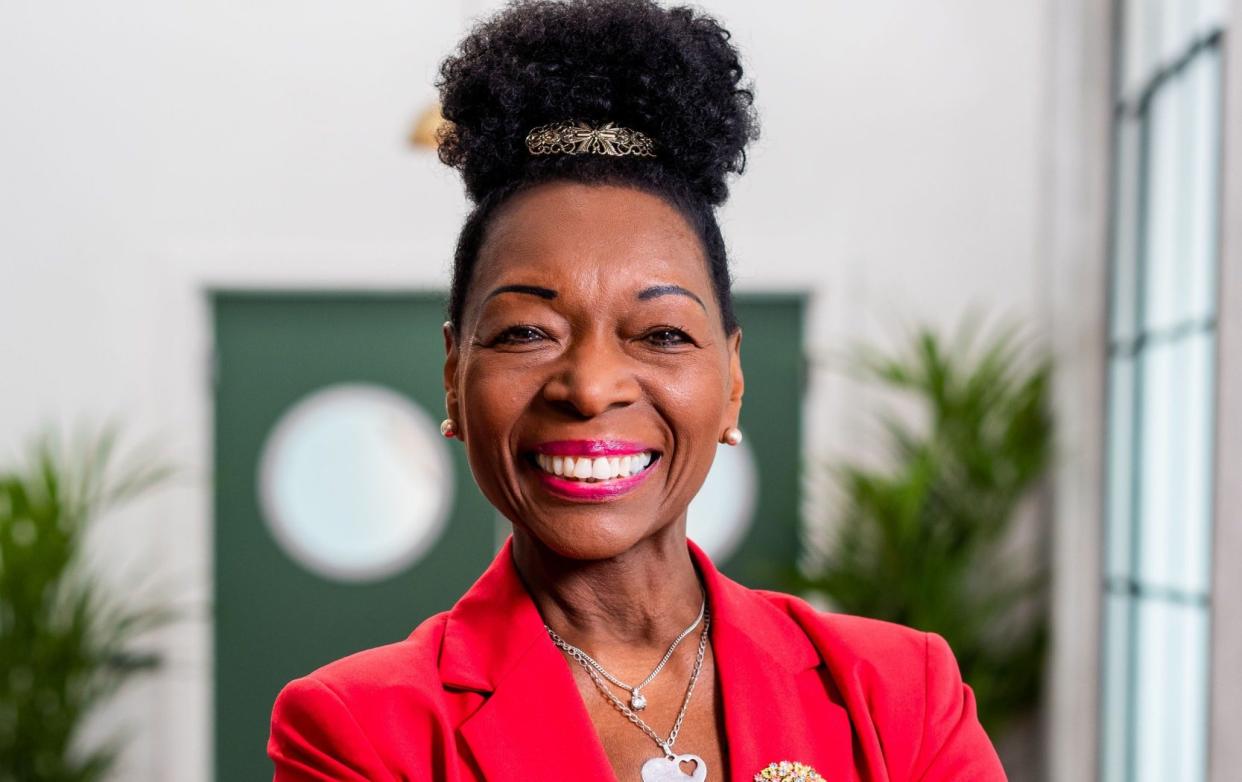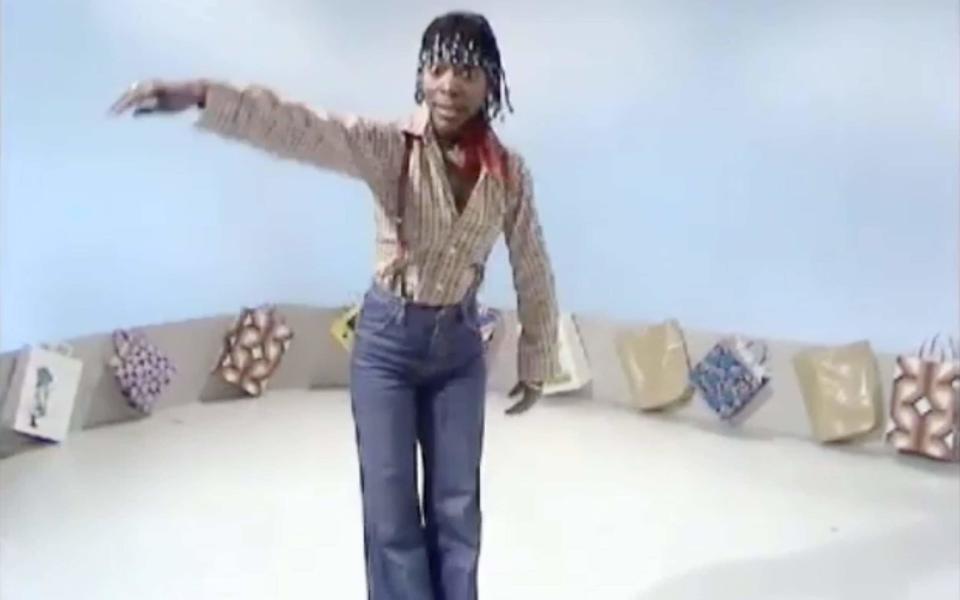Floella Benjamin interview: 'I wanted to give unconditional love to every child watching Play School'

“I hope when you write this you put across the joy and enthusiasm I feel for life,” Floella Benjamin declares suddenly, mid-conversational flow about Coming to England, her best-selling 1995 memoir, now a stage musical in Birmingham. “I want your article to uplift people, not make them angry.”
In that slightly disconcerting, and commanding, directive, I get a droll flash of what Benjamin might have been like when she took her first step into the showbiz spotlight, setting herself on the path to becoming a national treasure.
In late 1969, having turned 20, she answered a newspaper advertisement seeking singers and dancers for the national tour of the sexually liberated 1967 hippie musical sensation Hair – ‘no theatrical experience necessary’. She kept being asked to stay on during her audition but only had the lunch-hour off from her accounts-office job at Barclays in the City. Addressing the unseen figures in the dark of Shaftesbury Theatre she laid down the law: “If you do want me to be in your show, you had better tell me right now. Oh and I want thirty pounds a week and I’m not taking my clothes off!” She got the gig and changed her life.
Now 72, Benjamin - made a Lib Dem peer in 2010, becoming Baroness Benjamin of Beckenham - genuinely answers to the description of ‘one of a kind’. That ensemble experience in Hair – as luck would have it, Keith Taylor, its stage-manager, would later become her husband and father to her two children - paved the way for more supporting company roles – including the London premiere of Jesus Christ Superstar. These in turn landed her the minor-sounding TV opportunity that made her a big household name.
In 1976, she became a presenter on the BBC children’s programme Play School, and for 12 years she entranced the nation’s children. “Ah, yes, you’re the right age,” she exclaims squinting into her screen, beaming, when we connect via Zoom. There are millions of her ‘Play School babies’, she says, all grown up but retaining formative memories of her. “Every day,” she says, her tone more amazed than self-admiring, “I get a letter, tweet, or email saying ‘You changed my life when I was little. The love that you poured out of the screen washed over me’.”

Though some of her co-presenters – among them Brian Cant and Derek Griffiths – were adored too, her gift was to make every child feel they were being directly addressed. “I wanted to give unconditional love to every single child watching.” Did she realise how transformative her contribution could be? “It took about five years before I fully realised children are like blank canvasses, and you can draw on that canvas to make happy human beings.”
She had a swift cultural impact, all the same. A rare ethnic minority face on TV at the time, she quickly told its producers to “put black and Asian children in the illustrations, to make sure they knew that they were part of the bigger picture”.
The acting work didn’t, however, move on in leaps and bounds. There were some notable credits – she drew acclaim playing a Brixton café owner in an evocative 1977 film about the black community in London, Black Joy – but does she not look at the relative abundance of roles now available to young actors of colour and wish she could have had those opportunities? “No, I get pleasure seeing black actors and actresses playing incredible roles on TV, in theatre and films. I’ve helped pave the way for them. I have no bitterness.”
It’s one thing to radiate kindness on the small-screen, another to do so round the clock. Some might assume that her determinedly cheery demeanour is an act; yet, you glean, that exceptional positivity is fundamental to her outlook.
“It’s a very unusual thing to be around,” affirms Sean Foley, artistic director of the Birmingham Rep, which is premiering Coming to England, as adapted by David Wood (who, co-incidentally, wrote for Play School’s sister programme Playaway). Foley has made her patron of the theatre’s youth and education programme and named a room after her. “Whenever she’s here, it’s like Mary Poppins is in the building. She wants to help people. It’s totally uncynical.”
Evoking her childhood in Trinidad and ‘Windrush generation’ journey, in 1960, aged 10, to Britain, Coming to England supplies a crucial explanation for Benjamin’s beneficence. It wasn’t so much the abrupt plunge from a lush tropical idyll into cold, austere Blighty that shocked her, as the swirling rapids of racism she had to negotiate. And that proved character-defining.

“I wrote the book long before Andrea Levy’s Small Island [2004]. I wanted people to get the child’s perspective – being told that the Queen loved you and that you were part of British society, then travelling across the Atlantic, going to the motherland, and finding out that it wasn’t true.” Her memoir relays a grim litany of horrible experiences from the moment she, her elder sister and two brothers were reunited with their two younger siblings and their parents.
She ran the gauntlet of prejudice: withering condescension from teachers, racist abuse in the playground, a hostile environment in shops, ‘dog mess’ sent through the letter-box by neighbours, a spurting water-hose shoved through it too, as well as the police being called on them while they were checking out a new house in Beckenham, Kent. In the sequel, The Arms of Britannia (2010), she also described being beaten up by a gang at a bowling-alley in Croydon.
“Every day something happened,” she says. It could have been the warping of her personality, instead it was the making of her. “I was angry for a while but then I had a spiritual moment, realising that it was other people who had a problem and I shouldn’t take it on. If you get angry you become a victim.”
Benjamin is judicious and self-aware; doesn’t want to get drawn on issues such as the Colston statue in Bristol because she knows she has a position of responsibility, is perhaps wary of her words being taken out of context. She is a trusted establishment figure and in the wake of the Windrush scandal Theresa May made her chair of the Windrush Commemoration Committee – which last year chose the Jamaican sculptor Basil Watson to design the National Windrush Monument. It will be unveiled in June at Waterloo Station, the daunting arrival-point for Benjamin in the capital more than 60 years ago.
“I have to pinch myself to think that I was that little 10 year old girl coming off that boat-train from Southampton to London. I never would have thought that I’d oversee a commemoration of the contribution that Caribbean people have made to Britain.” It’s there to honour an entire generation, but Benjamin’s spirit will attend it. “I don’t want it to be defined by anything that’s negative. It will be defined by joy and happiness because that’s what we came with in our hearts.”
Coming to England runs from Mar 31 to Apr 16 at Birmingham Rep (0121 236 4455), birmingham-rep.co.uk

 Yahoo News
Yahoo News 
